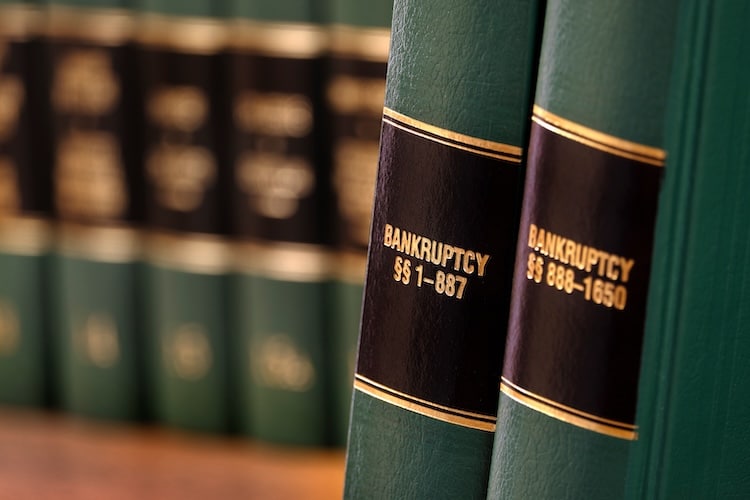
Frequently Asked Questions on Bankruptcy
What is bankruptcy? Bankruptcy is a legal process that helps individuals or businesses eliminate or repay (some or the entirety) of their debts under the protection of the federal bankruptcy court. Below are some frequently asked questions on bankruptcy.
What are the types of bankruptcy?
Chapter 7: Is a “liquidation” bankruptcy for individuals and businesses, where non-exempt assets are sold to pay creditors.
Will I lose my personal belongings if I file Chapter 7 bankruptcy?
California’s exemptions are generous for individuals. In a majority of cases, individual filers retain possession of their belongings without turning anything over to the bankruptcy trustee. Most often, , a majority of Chapter 7 bankruptcy filers are able to exempt (protect) their assets from being sold to pay creditors. At RJS LAW we work closely with each filer, prior to filing, to exempt assets and reduce or eliminate non-exempt assets.
Chapter 11: Is a reorganization most typically filed by businesses, allowing them to reorganize debts and continue operating uninterrupted. Individuals who do not qualify for chapter 7 or chapter 13 option, may be candidates for chapter 11 as a way to maintain possession of unexempt assets, cure mortgage arrears, and resolve secured, priority and unsecured debt.
Chapter 13: Is a reorganization for a majority of individuals that do not qualify for either chapter 7 of chapter 11 relief. Chapter 13 allows filers to create a repayment plan to pay off debts over three to five years and provides the opportunity to maintain possession of unexempt assets, cure mortgage and vehicle arrears, payoff tax liabilities, and cancel some or all of your unsecured debts.
Why would I file a Chapter 13 if I qualify for a Chapter 7 bankruptcy?
There are various reasons a person will consider filing a chapter 7 bankruptcy.
- If you are behind on your mortgage payment chapter 13 may provide you the opportunity to repay the arrears over a 36 to 60-month period;
- If you are behind on your car payments you may be able to avoid repossession, allowing you the opportunity to catch up and pay the arrears. And in some circumstances the amount paid to the creditor may be reduced to the present fair market value of the vehicle as of the date of filing;
- If your vehicle was recently repossessed, under chapter 13 you may be able to reduce the outstanding balance due on a car loan to the vehicles present fair market value; and,
- If you have unexempt assets you wish to keep chapter 13 may provide you the opportunity to keep the unexempt asset. For example:
- Do you have an unexempt classic car you want to keep?
- Do you have a piece of artwork or jewelry you want to retainer?
- Depending on your financial circumstances, chapter 13 may provide you the opportunity to avoid selling your valued assets.
What debts can be discharged?
Most unsecured debts such as credit card debt, medical bills, and personal loans can be discharged. Certain debts, including student loans, child support, and tax debts, are generally non-dischargeable.
How does Bankruptcy impact my credit?
Bankruptcy can significantly impact your credit score and remain on your credit report for up to 10 years under chapter 7 or for 7 years under chapter 13.
Will I lose my assets?
In Chapter 7, non-exempt assets may be sold to pay creditors, but many individuals can keep essential assets through exemptions. Chapter 13 allows you to keep your unexempt property while repaying some or all of your debts.
How long does the bankruptcy process take?|
Chapter 7 bankruptcies typically take approximately 4 months from the date of filing, while chapter 13 can take 3 to 5 years due to the repayment plan.
Do I need a lawyer to file for bankruptcy?
While it is legally possible to file without a lawyer (pro se), it is highly recommended to seek legal advice to navigate the complex processes and rules in order to fully protect your rights. For instance, exemptions are not automatic and must be property elected and applied. Without making the correct elections a self-represented filer may lose assets which could otherwise be protected from being sold or turned over to the trustee for the benefit of creditors.
What happens to my credit after bankruptcy?
Your credit score will likely drop. However, many people rebuild their credit within a few years by managing their finances responsibly.
Can I file for bankruptcy more than once?
Yes, but there are specific time frames for filing different chapters. For example, you can file for chapter 7 after waiting eight years from your most recent chapter 7.
What debts can be discharged?
Yes, filing for bankruptcy triggers an automatic stay, which halts most collection activities, including calls, garnishments, and lawsuits. Creditors can be subject to damages if they continue collections activity during the automatic stay period or after discharge.
How do I rebuild my credit after bankruptcy?
You can rebuild your credit by a reaffirming a vehicle loan (chapter 7), obtaining a secured credit card, making timely payments, and keeping your debt-to-income ratio low.
RJS LAW Frequently Asked Questions on Bankruptcy
RJS LAW can provide an in-depth, no-cost consultation to answer your questions, review your options and identify which bankruptcy option is best suited to achieve your goals. Please contact us to arrange your appointment.
